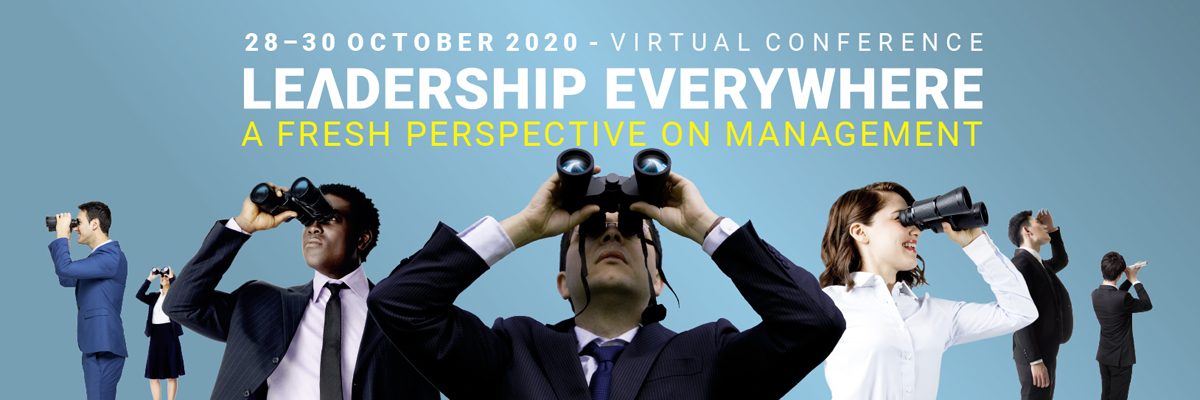
Richard Straub in his starter article for this year’s Global Peter Drucker Forum, What Management Needs to Become in an Era of Ecosystems made some excellent observations.
Straub correctly, in our view, suggested that the ecosystems are not new quoting numerous theorists whose ideas were shaped primarily during the last century. However, we suggest that organizational ecosystems have always existed and just given a name in the last 50 or so years.
What has changed since the end of the last century is the speed at which conditions change primarily due to advancements in technology; the internet, AI, social media, and more. Traditional measures like profits, market share, ROI, stock price, etc. are outcomes from innovative ideas generated by people within the ecosystem.
Drucker Forum 2019
Rapid response to change requires executives to first identify and understand the underlying conditions within the ecosystem that enable people, who power the ecosystem, to generate innovative ideas with desirable outcomes. Senior executives frequently say that “people are our most valuable asset” but how does the CEO know what is going on in the minds of people operating within the ecosystem? In order to avoid an expensive and aimless wandering from consultant to consultant CEOs should take a diagnostic approach to evaluating the ecosystem. Think of it as a doctor. We suspect, you would not have much confidence in the doctor’s diagnosis if the doctor started prescribing pills before taking your blood pressure or listening to your heart, yet, this is exactly what business executives do when diagnosing the culture and people within the ecosystem.
Over the past two decades we have observed that top tier companies have strong foundations in responsiveness, alignment, capabilities, motivation, and cleverness which we believe are the underlying people-centric conditions for success. The trick for executives in diagnosing interferences or viruses within the ecosystem is to ask the “right” questions…. like a doctor. Here are some starter questions;
- Responsiveness – Is the organization flexible and able to react to changes in the environment?
- Alignment – Is the direction of the organization clear? Does the structure fit the strategy? Is it shared broadly and are employees aligned to support the strategies?
- Capabilities – Does the organization have the competencies and skills needed to deliver on promises?
- Motivation – Are employees throughout the organization inspired to perform above and beyond expectations?
- Cleverness – Are employees empowered to be creative and use their creativity to meet expectations or demands from clients or customers within boundaries that do not stifle creativity?
If you don’t ask the right questions, you won’t get the right answer. Begin by asking these questions throughout your ecosystem then use the “5-why’s” approach to find out what ails your organization. Then you can take targeted action to eliminate the virus. Executives will not know where the answers will take them but the people within the ecosystem instinctively know what management must do so ask … and ask … and ask … then LISTEN!
About the Authors:
Herb Nold is professor of business administration at Polk State College in Winter Haven/Lakeland, Florida and has authored numerous research papers and a book chapter on the subject of organizational culture, change, and agility.
Lukas Michel is CEO of Agility Insights AG, Switzerland, founder of the AGILITYINSIGHTS.NET, and author of 2 books “The Performance Triangle” and “Management Design”.
This article is one in the Drucker Forum “shape the debate” series relating to the 11th Global Peter Drucker Forum, under the theme “The Power of Ecosystems”, taking place on November 21-22, 2019 in Vienna, Austria #GPDF19 #ecosystems


My favorite take away: If you don’t ask the right questions, you won’t get the right answer. Begin by asking these questions throughout your ecosystem then use the “5-why’s” approach to find out what ails your organization. Then you can take targeted action to eliminate the virus….the people within the ecosystem instinctively know what management must do …Leadership: Ask … and ask … and ask … then LISTEN!